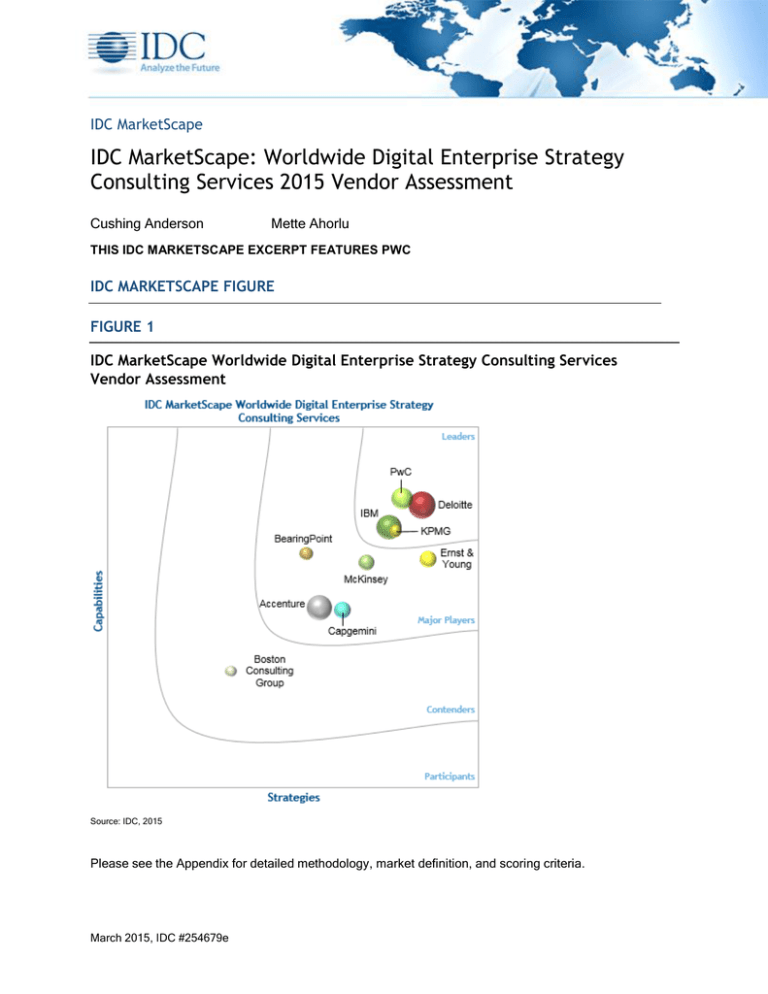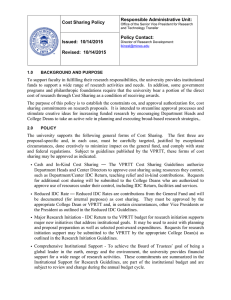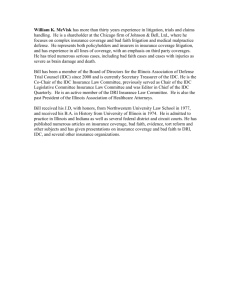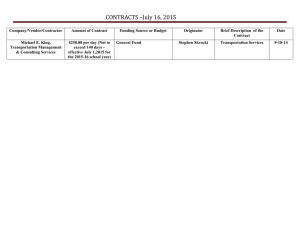
IDC MarketScape
IDC MarketScape: Worldwide Digital Enterprise Strategy
Consulting Services 2015 Vendor Assessment
Cushing Anderson
Mette Ahorlu
THIS IDC MARKETSCAPE EXCERPT FEATURES PWC
IDC MARKETSCAPE FIGURE
FIGURE 1
IDC MarketScape Worldwide Digital Enterprise Strategy Consulting Services
Vendor Assessment
Source: IDC, 2015
Please see the Appendix for detailed methodology, market definition, and scoring criteria.
March 2015, IDC #254679e
IN THIS EXCERPT
The content for this excerpt was taken directly from IDC MarketScape: Worldwide Digital Enterprise
Strategy Consulting Services 2015 Vendor Assessment (Doc #254679). All or parts of the following
sections are included in this excerpt: IDC Opinion, IDC MarketScape Vendor Inclusion Criteria,
Essential Guidance, Vendor Summary Profile and Appendix. Also included is Figure 1.
IDC OPINION
This IDC study represents the vendor assessment model called IDC MarketScape. This research is a
quantitative and qualitative assessment of the characteristics that explain a vendor's current and future
success in the marketplace. This study assesses the capability and business strategy of many of the
leading business consulting firms. This evaluation is based on a comprehensive framework and set of
parameters expected to be most conducive to success in providing business consulting services
during both the short term and the long term. A significant and unique component of this evaluation is
the inclusion of business consulting buyers' perception of both the key characteristics and the
capabilities of these consulting providers. As one would expect of market leaders, overall, these firms
performed very well on this assessment. Key findings include:
Worldwide, consulting providers that are working on "digital strategy" projects with their clients
are generally considered capable, particularly in projects to improve the information
architecture.
Consultants are also generally quite capable at digital strategy projects that improve the
effectiveness of their client's internal operations by leveraging digital tools. And they are also
seen as most capable at helping leverage digital tools to improve the usefulness of their
client's products or services and at making content better available on the Web related to
products and services.
Unfortunately, consultants are generally less capable at other important "digital strategy"–related
engagements, particularly projects to leverage digital to improve customer service or to improve
the visual design and consumability of their client's information resources. And surprisingly,
consultants in general are not as strong at leveraging digital tools and techniques to improve
marketing capabilities.
IDC MARKETSCAPE VENDOR INCLUSION CRITERIA
This research includes analysis of the five largest business consulting firms and additional firms with
broad portfolios spanning IDC's research coverage and with global or regional importance. This
assessment is designed to evaluate the characteristics of each firm — as opposed to its size or the
breadth of its services. It is conceivable, and in fact the case, that specialty firms can compete with
multidisciplinary firms on an equal footing. As such, this evaluation should not be considered a "final
judgment" on the firms to consider for a particular project. An enterprise's specific objectives and
requirements will play a significant role in determining which firm should be considered as potential
candidates for an engagement.
©2015 IDC
#254679e
2
ESSENTIAL BUYER GUIDANCE
Business requirements demand solutions that work holistically within an enterprise. These solutions
are often complex and require multiple domains of expertise and stakeholders from a variety of areas
to ensure success. As a result, consulting projects are often complex. To maximize value and minimize
disruption, enterprise leaders must:
Ensure project is strategically valuable (be sure of full organizational commitment).
Create visible links between project strategy and "business execution."
Integrate all impacted LOBs throughout the project to ensure stakeholder needs are fully satisfied.
Anticipate and address the common obstacles to successful digital enterprise strategy
consulting projects. These include:
Organizational change, which is often underestimated, especially as project scope or
complexity increases
Insufficient internal resources assigned to the project, which decreases project awareness
of interdependent issues and increases reliance on external consultants for critical
interlock activities
VENDOR SUMMARY PROFILES
This section briefly explains IDC's key observations resulting in a vendor's position in the IDC
MarketScape. While every vendor is evaluated against each of the criteria outlined in the Appendix,
the description here provides a summary of the vendor's strengths and challenges.
PwC
According to IDC analysis and buyer perception, PwC is an IDC MarketScape Leader for digital
enterprise strategy consulting worldwide.
PwC is a "Big Four" global professional services organization established as a global network of
member firms with more than 195,000 people globally in 758 locations across 157 countries. PwC
serves client organizations across all sectors and functional areas. PwC provides services through
three divisions or "lines of service": assurance, tax, and advisory. The advisory business contains
deals, forensics, and consulting.
Consulting services covered within the scope of this IDC research include those provided with the
following capabilities:
Strategy
Operations
Finance
People and organization
Customer
Technology
Portfolio and program management
Risk
Forensic
©2015 IDC
#254679e
3
PwC organizes its services and solutions by industry sectors and brings together its functional and
industry skills to focus on services important at the C-suite level. This organization empowers PwC's
Digital Services capabilities to be served to clients across the firm's existing structure as opposed to a
discrete digital practice in which capabilities could get "siloed."
PwC aggressively expanded its digital consulting business — particularly its skills in disruptive strategy,
digital customer engagement and experience, data and analytics, digital business operations, and 3rd
Platform technology capabilities — to strengthen its ability to help clients with large-scale digital
transformation from strategy and innovation through to execution. This has been achieved via a
combination of solid organic growth and significant inorganic investment.
PwC completed a number of strategically noteworthy digital-focused acquisitions within the past few
years to offer end-to-end digital solutions, including social media consultancy Ant's Eye View; digital
marketing agency BGT Partners; digital strategy consultancy Booz Digital (now Strategy&); digital,
Web, and mobile solutions provider Intunity; digital analytics consultancy Logan Tod; user experience
design consultancy Optimal Experience; and user experience consultancy Stamford Interactive.
In addition, previous acquisitions of Diamond Management & Technology Consultants, PRTM, and
significant portions of BearingPoint's U.S. units; global delivery centers in India and China; and Japan
operations added experienced technology strategy, product development, customer service
innovation, and business model innovation that support PwC's digital business offerings.
In 2014, PwC merged with the strategy and management consultancy, Booz & Co., which has been
renamed Strategy&. Together, PwC and Strategy& form a global advisory business that designs
practical strategies for the world's top companies and can execute them across a wide range of
functions and service offerings, turning ideas into action.
PwC's market approach is industry focused and aims to deliver value from strategy through execution,
drawing on both the broad range of functional skills in its consulting business and its capabilities in
deals, forensics, tax, and assurance. PwC focuses clients' attention on their ongoing business issues —
what PwC calls "business imperatives" — to deliver on its global platforms, integrated solutions, and
offerings. PwC's relationships with key technology players help bring advanced and more efficient
digital business solutions to clients through strategic alliances like SAP, Oracle, salesforce.com,
Workday, Microsoft, and most recently, Google. PwC's model facilitates the use of cross-border, crosscompetency, and cross-line service teams to meet changing needs. PwC is positioned to actively
compete for a broad range of digital services, in both the front office and the back office, by combining
its deep industry expertise and business knowledge with its robust technology skills. PwC is a fullservice consulting firm, pulling resources and collective expertise from across all parts of its global
network to address the needs of clients.
Strengths
PwC is well regarded worldwide by business consulting customers that view it as overall the most
capable firm at helping them improve operational efficiency, at understanding the unique needs of their
business, and at leveraging local and global staff appropriately.
PwC is seen as the most capable of all firms in the digital enterprise strategy consulting space in a
number of areas: capturing and leveraging data from clients or internal processes, improving
accessibility of information resources internally or for customers, leveraging product or service content,
and aligning digital presence with corporate brand. Moreover, PwC is considered to be among the best
©2015 IDC
#254679e
4
at improving the visual design and consumability of information resources and better than many firms
at digital marketing, improving the usability of digital products and services, leveraging digital to
improve customer service, and improving information architecture.
Challenges
One area in which clients perceive PwC to need significant improvement is its ability to leverage digital
capabilities to improve the effectiveness of internal operations.
APPENDIX
Reading an IDC MarketScape Graph
For the purposes of this analysis, IDC divided potential key measures for success into two primary
categories: capabilities and strategies.
Positioning on the y-axis reflects the vendor's current capabilities and menu of services and how well
aligned the vendor is to customer needs. The capabilities category focuses on the capabilities of the
company and product today, here and now. Under this category, IDC analysts will look at how well a
vendor is building/delivering capabilities that enable it to execute its chosen strategy in the market.
Positioning on the x-axis, or strategies axis, indicates how well the vendor's future strategy aligns with
what customers will require in the next three to five years. The strategies category focuses on highlevel decisions and underlying assumptions about offerings, customer segments, and business and
go-to-market plans for the next three to five years.
The size of the individual vendor markers in the IDC MarketScape represents the market share of each
individual vendor within the specific market segment being assessed.
IDC MarketScape Methodology
IDC MarketScape criteria selection, weightings, and vendor scores represent well-researched IDC
judgment about the market and specific vendors. IDC analysts tailor the range of standard
characteristics by which vendors are measured through structured discussions, surveys, and
interviews with market leaders, participants, and end users. Market weightings are based on user
interviews, buyer surveys, and the input of a review board of IDC experts in each market. IDC analysts
base individual vendor scores, and ultimately vendor positions on the IDC MarketScape, on detailed
surveys and interviews with the vendors, publicly available information, and end-user experiences in
an effort to provide an accurate and consistent assessment of each vendor's characteristics, behavior,
and capability.
Note: All numbers in this document may not be exact due to rounding.
Priorities of Business Consulting Buyers/Consulting Buyer
Perception as an Input
A significant and unique component of this evaluation is the inclusion of the perception of business
consulting clients of both the key characteristics and the capabilities of these consulting providers. This
insight is captured in a broad-based random survey of consulting firm clients and reveals key insights
regarding the capabilities of the individual firms.
©2015 IDC
#254679e
5
"Digital strategy" for this document covers a broad set of issues relating to leveraging widely applicable
technologies — such as cloud-based software, social tools and techniques, mobile devices, analytic
and big data techniques, and a range of others — to improve essential functions. IDC has categorized
the range of use cases for digital into three overarching sets:
Evolve the business to include more "digital" products and services.
Evolve the business to include better use of "digital" capabilities to improve the customer
experience.
Evolve the business to include better use of "digital" capabilities to improve internal
operations.
The trend to apply these rapidly growing technologies and techniques appears to be accelerating.
More than half of all enterprises consider one of these three issues important, and very few
organizations consider these issues "unimportant" to their success. The "net importance" for each of
these three strategies is over 30%, illustrating that 30% more firms think the strategy is important than
think it is not important (see Figure 2).
FIGURE 2
Importance of "Digital" as an Enterprise Strategy
Q.
How important a business priority do you believe each of the following is currently for your
organization?
n = 649
Note: Net importance is the percentage of respondents who selected the "bottom 2" boxes subtracted from the percentage of
respondents who selected the "top 2" boxes.
Source: IDC's Worldwide Consulting Buyer Perception Survey, November 2014
Regionally, the Americas, EMEA, and Asia/Pacific have different priorities:
In the Americas, digital projects are strongly focused on internal operations: improving the
information architecture, effectiveness of operations, and capturing data. Even the high priority
of customer service reflects a desire to improve those specific processes in addition to the
customer experience.
©2015 IDC
#254679e
6
In EMEA, while improving processes are important, the focus is somewhat more on customers
and the customer experience.
In Asia/Pacific, there is an even greater focus on using digital-related projects to "get the word
out" — with usability and information about the products and services and customer services
being high priorities.
Market Definition
Business consulting involves advisory and implementation services related to management issues. It
often includes defining an organization's strategy and goals and designing and implementing the
structures and processes that help the organization reach its goals. Business consulting includes three
main areas: strategy consulting, operational improvement consulting, and change and organization
consulting. This particular document focuses on "digital enterprise strategy" consulting defined as:
Digital enterprise strategy consulting analyzes the business imperatives that ultimately
drive businesses' adoption of 3rd Platform technologies (social, mobile, analytics,
cloud, etc.). Digital enterprise consulting offers insight and advice to help enterprises
envision, validate, and execute new strategies and major changes to product
offerings, business models, operations, and even business relationships.
Strategies and Capabilities Criteria
The importance of a firm's characteristics to project success and relevance of the particular issue
combined with IDC's opinion about the impact those elements have on the selection of firms implies a
unique weighting of these elements when evaluating a firm's overall strategy and capability to address
market opportunity and realizing market success (see Tables 2 and 3).
In addition to the criteria for success having varying weights, IDC believes the aggregate criteria
(offering, go to market, and business) should also be weighted. Table 4 illustrates the relative weights
used in this analysis.
Synopsis
This IDC study uses the IDC MarketScape model to provide an assessment of a number of providers
participating in the worldwide business consulting services market that have particular capabilities in
digital enterprise strategy consulting. The IDC MarketScape is an evaluation based on a
comprehensive framework and a set of parameters that assesses providers relative to one another
and to those factors expected to be most conducive to success in a given market during both the short
term and the long term.
"While consulting providers are generally perceived as capable, buyers of consulting services to
support the digital transformation of their operations are critical of consulting providers' ability to
leverage digital to improve customer service or to improve the visual design and consumability of their
clients' information resources. However, in this research, we find that some vendors are better able to
produce meaningful results than others." — Cushing Anderson, vice president, Business Consulting
Services research
©2015 IDC
#254679e
7
About IDC
International Data Corporation (IDC) is the premier global provider of market intelligence, advisory
services, and events for the information technology, telecommunications and consumer technology
markets. IDC helps IT professionals, business executives, and the investment community make factbased decisions on technology purchases and business strategy. More than 1,100 IDC analysts
provide global, regional, and local expertise on technology and industry opportunities and trends in
over 110 countries worldwide. For 50 years, IDC has provided strategic insights to help our clients
achieve their key business objectives. IDC is a subsidiary of IDG, the world's leading technology
media, research, and events company.
Global Headquarters
5 Speen Street
Framingham, MA 01701
USA
508.872.8200
Twitter: @IDC
idc-insights-community.com
www.idc.com
Copyright Notice
This IDC research document was published as part of an IDC continuous intelligence service, providing written
research, analyst interactions, telebriefings, and conferences. Visit www.idc.com to learn more about IDC
subscription and consulting services. To view a list of IDC offices worldwide, visit www.idc.com/offices. Please
contact the IDC Hotline at 800.343.4952, ext. 7988 (or +1.508.988.7988) or sales@idc.com for information on
applying the price of this document toward the purchase of an IDC service or for information on additional copies
or Web rights.
Copyright 2015 IDC. Reproduction is forbidden unless authorized. All rights reserved.




